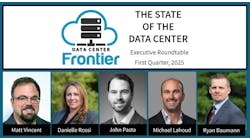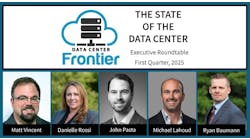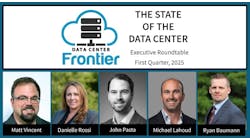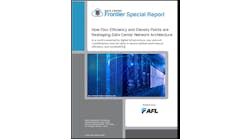The Data Center Frontier Executive Roundtable features insights from industry executives with lengthy experience in the data center industry. Here’s a look at the insights from Phillip Marangella, Chief Marketing and Product Officer, for EdgeConneX.
Phillip Marangella is the Chief Marketing and Product Officer at EdgeConneX, where he develops and executes the company's marketing and product strategies. With 25 years of experience in international marketing, strategy, and business development across the data center, telecom, and technology sectors, he brings significant expertise to his role.
Phillip serves on the marketing advisory boards for Lokker, Salute Mission Critical, Infrastructure Masons, and Data Center Coalition. His leadership has earned him several awards, including the Infrastructure Masons Champion Awards for Diversity & Inclusion and Education in 2021 and the PTC'23 Outstanding Diversity and Inclusion Champion Award for developing and mentoring HBCU Capstone Programs. Recognized as a top 10 marketing executive by DataCentre Magazine, Phillip won the Datacloud Global Agent of Change Award in 2023.
Phillip holds a Bachelor's degree in Political Science from the University of California, San Diego, and a Master's in Multinational Commerce from Boston University. His extensive background and innovative approach drive growth at EdgeConneX.
Data Center Frontier: As we close out the Fourth Quarter of 2024, how do you see regulatory and public pressures shaping the data center industry's ambitions vs. its realities?
Phillip Marangella, EdgeConnex: Regulatory and public pressures are certainly increasing worldwide, but it's a very market-specific dynamic.
Demonstrating the positive value that data centers can bring to local communities and digital economies requires education, collaboration, and communication with leaders and communities.
While some established markets are becoming more challenging, this is, in turn, driving demand for new alternative markets that are trying to attract data centers.
Data Center Frontier: To what degree is data center site selection the North Star for construction and development stakeholders in terms of guiding decisions on power and cooling infrastructure?
Phillip Marangella, EdgeConneX: Real estate is taking a back seat to power. Power availability and scalability are the primary considerations regarding site selection.
Only once hundreds of megawatts can be secured can you consider a property and the power and cooling infrastructure necessary to support high-density deployments from AI.
Data Center Frontier: What are the most pivotal sustainability considerations and actions for colocation and hyperscale data centers headed into 2025?
Phillip Marangella, EdgeConneX: Key sustainability considerations for providers include:
1. Achieving 100% Carbon Free scope 1 and 2 targets to demonstrate commitment to tangible goals and KPI attainment (through green supply, REC/EACS, PPA, and other approved means).
2. Calculating Water Usage Effectiveness (WuE) into the sustainability equation, given its increasing necessity to support the cooling of AI and high-density deployments.
3. Evaluating and leveraging alternative carbon-free energy sources as an augmentative and primary power source.
4. Continue to openly report on sustainability goals and achievements to be transparent as a company and as an industry, and demonstrate a real and concerted commitment to sustainability.
Data Center Frontier: From your perspective, how is the massive build-out of AI infrastructure and its associated power demand impacting prospects for future data center investment and planning?
Phillip Marangella, EdgeConneX: The impact of AI on the data center space is unprecedented.
While the Internet and Cloud eras were long, slow burns in demand and build-out, AI requires massive scaling in capacity almost instantly.
Similarly, the density demands are also dramatically growing in a step-scale fashion, which is also challenging builders and operators of data centers. T
The capital demands coming from this scale are equally massive, and tens to hundreds of billions will be required to support AI in the coming years.

Matt Vincent
A B2B technology journalist and editor with more than two decades of experience, Matt Vincent is Editor in Chief of Data Center Frontier.





